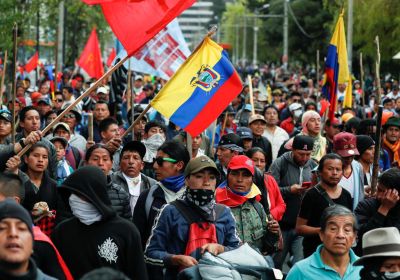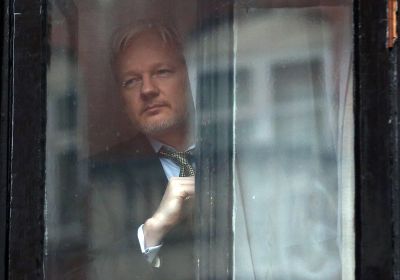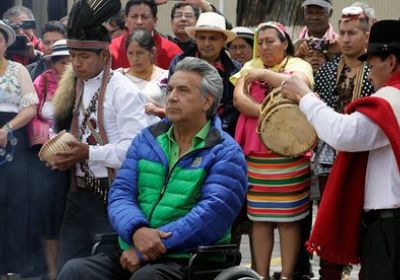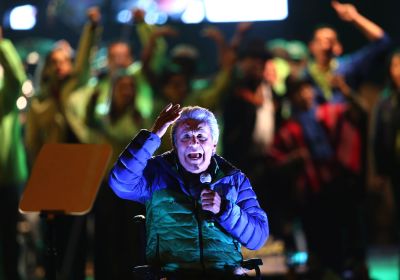
The ruling class’ brutal project of neoliberalism in Ecuador is making life unbearable for the people reports Yanis Iqbal.

The ruling class’ brutal project of neoliberalism in Ecuador is making life unbearable for the people reports Yanis Iqbal.

Washington wants Assange extradited to the US to be tried on the charge of helping Chelsea Manning hack a government computer in 2010.

The arrest of Julian Assange is an explicit warning towards journalists. What happened to the founder and editor of WikiLeaks can happen to you on a newspaper, you in a TV studio, you on radio, you running a podcast, writes John Pilger.

The persecution of Julian Assange is the conquest of us all: of our independence, our self respect, our intellect, our compassion, our politics, our culture, writes John Pilger.

National sovereignty is an undervalued asset in today’s world, especially in the international media, where the views of Washington and its allies largely prevail. This is true with regard to economic as well as political issues, and its consequences can be quite heavy in a region like Latin America, long regarded by US officials as their “back yard.”
The election in Ecuador is being watched as well as contested by forces that have opposing views on this question.

Ecuador will return to the polls on April 2 after a first round presidential vote failed to deliver a decisive victory for Lenin Moreno, the candidate seeking to continue outgoing President Rafael Correa’s pro-poor “Citizens’ Revolution”.
Moreno now faces the challenge of ensuring Ecuador does not join the list of countries in the region where the left has recently lost at the ballot box.


Ecuador's granting of asylum to WikiLeaks editor-in-chief Julian Assange has thrown a spotlight on the country's media policy. In 2008, Ecuadorians voted overwhelmingly for a new constitution.